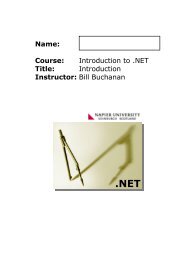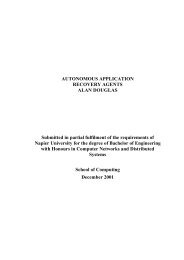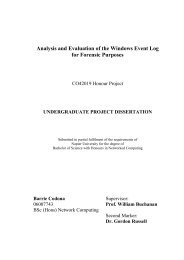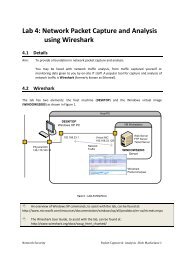Honours Project: - Napier University
Honours Project: - Napier University
Honours Project: - Napier University
You also want an ePaper? Increase the reach of your titles
YUMPU automatically turns print PDFs into web optimized ePapers that Google loves.
Gregory Huet<br />
<strong>Honours</strong> <strong>Project</strong><br />
99034735 Dr. William Buchanan<br />
The foreign keys are:<br />
• users table: group_user is the foreign key of the num_group in the groups table.<br />
• groups table: com_group is the foreign key of the num_com in the community table.<br />
• Info table: owner_info is the foreign key of the num_user in the users table.<br />
• opinion table:<br />
•num_info is the foreign key of the num_info in the info table.<br />
•owner_opinion is the foreign key of the num_user in the users table.<br />
Relations:<br />
A user belongs to a unique group, indirectly he/she belongs to a unique community of users. It<br />
means that a user has a unique group and community. Inversely, a group has several users (as<br />
a community).With the same idea, a group belongs to a community (notion of parent and<br />
children). A community is composed of several groups, and a group belongs to a unique<br />
community.<br />
A user creates an event (an information), and it belongs to the user. But a user can create<br />
several events in his/her calendar. So, an event belongs to a unique user which could have<br />
several events recorded. An opinion is created by a user to reply to an event. This opinion<br />
belongs to a unique user (its creator) and corresponds to a unique event (the information). So<br />
an event could have several opinions from a single user or several users.<br />
Relations between tables<br />
Diagram of the relation between tables:<br />
Figure 14: Relations between tables<br />
41


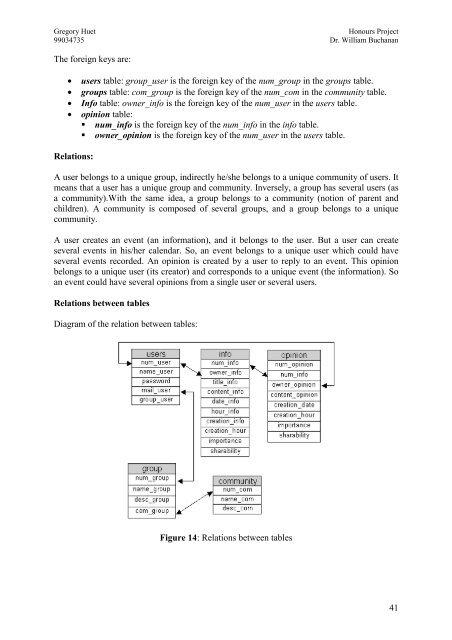
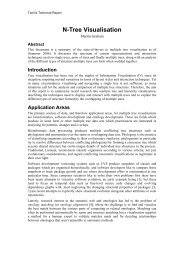
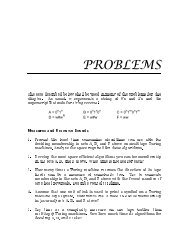
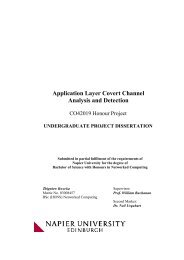
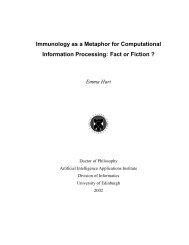



![Unit 5. Switches and VLANs [PDF]](https://img.yumpu.com/34422504/1/184x260/unit-5-switches-and-vlans-pdf.jpg?quality=85)
